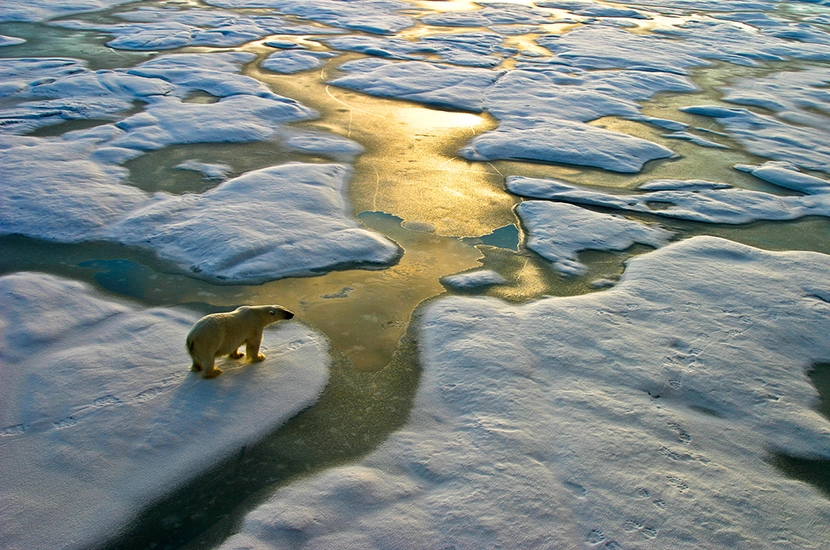It may be time for Father Christmas to look for a new home, before the Russians kick him out. ‘This is our Arctic,’ declared the Russian explorer Artur Chilingarov when he went to the North Pole in 2003. Four years later, another Russian expedition, again led by Chilingarov, planted a titanium flag on the seabed 2.5 miles below the Pole. It was a symbolic gesture of a geopolitical ambition. The jingoistic Chilingarov proclaimed: ‘Our task is to remind the world that Russia is a great Arctic and scientific power.’
Since 2013, Russia has invested heavily in seven military/naval bases along its Arctic coast to strengthen the country’s power and influence. ‘The Americans think that only [they] can… make the rules,’ Foreign Minister Sergei Lavrov stated. ‘In terms of the NSR [Northern Sea Route], this is our national transport artery.’ Last month, barely reported by western media, President Vladimir Putin, at a ceremony in St Petersburg’s Admiralty shipyard, unveiled a new diesel-electric icebreaker ship, the Viktor Chernomyrdin, the most powerful non-nuclear vessel of its type in the world. Just a month earlier, another new icebreaker, the Arktika, a 33,000-ton nuclear-powered ship with the displacement of a second world war aircraft carrier, began operations in the Arctic. Its bows can crash through ice 10ft thick.
Future plans include three ‘Leader Class’ 70,000-ton behemoths to add to the roster of 37 large icebreakers. It is a force that supports the Northern Fleet, based near the city of Murmansk off the Barents Sea, which musters an impressive 35 surface vessels and the same number of submarines.
The Russian Arctic with its 15,000 miles of coastline, home to two million people, was of dubious value until recently. Global warming has changed that. According to the 2014 report by the Intergovernmental Panel on Climate Change, Arctic ice volumes have decreased by 75 per cent since 1980 and large swaths of the Arctic Ocean could be ice-free within a generation.







Comments
Join the debate for just £1 a month
Be part of the conversation with other Spectator readers by getting your first three months for £3.
UNLOCK ACCESS Just £1 a monthAlready a subscriber? Log in